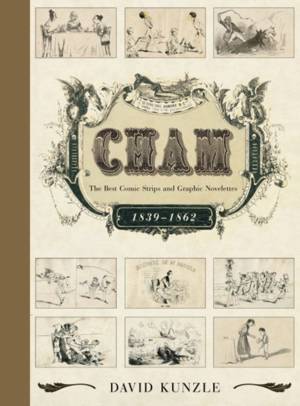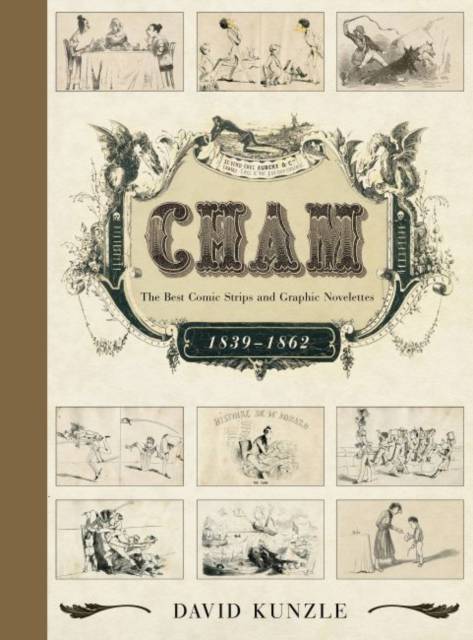
- Retrait gratuit dans votre magasin Club
- 7.000.000 titres dans notre catalogue
- Payer en toute sécurité
- Toujours un magasin près de chez vous
- Retrait gratuit dans votre magasin Club
- 7.000.000 titres dans notre catalogue
- Payer en toute sécurité
- Toujours un magasin près de chez vous
125,95 €
+ 251 points
Description
Cham, real name Count Amédée de Noé and a serious rival to Daumier, may have been the epitome of a célèbre inconnu, a famous unknown. He is one much deserving, at last, of this first account of his huge oeuvre as a caricaturist. This book concentrates on his mastery of the important newcomer to the field of caricature, which we call comic strip, picture story, and graphic novel. The volume features facsimiles of nearly twenty of these from 1839 to 1863 and ranging from one page to forty (this last a parody of Victor Hugo's Les Misérables). In addition, summaries and sample illustrations of twenty-seven "minor works" demonstrate that Cham is by far the most important specialist of what was then a new genre in Europe. Born to an ancient aristocratic family, Cham was from early on wholly dedicated to an art considered far beneath his class. Starting as a disciple of the father of the modern comic strip, Swiss Rodolphe Töpffer, Cham soon launched out on his own, evolving an original form of comedy, his own comédie humaine, farcical, absurd, and parodic. His productivity was legendary and comprised all the known genres of caricature, the full-page cartoon lithograph, the thematic seasonal group, weekly and monthly humorous comment (much like the daily newspaper cartoonist today), and a feature called the Revue Comique, which made him the supreme graphic journalist of his day. Hitherto unknown correspondence reveals an attractive personality who was fond of animals and who honored a low-class woman he eventually made his countess. Vaunted comics scholar David Kunzle has created a fitting tribute to Cham's impact and genius.
Spécifications
Parties prenantes
- Auteur(s) :
- Editeur:
Contenu
- Nombre de pages :
- 538
- Langue:
- Anglais
- Illustré:
- Oui
Caractéristiques
- EAN:
- 9781496816184
- Date de parution :
- 18-03-19
- Format:
- Livre relié
- Format numérique:
- Genaaid
- Dimensions :
- 262 mm x 351 mm
- Poids :
- 3538 g







